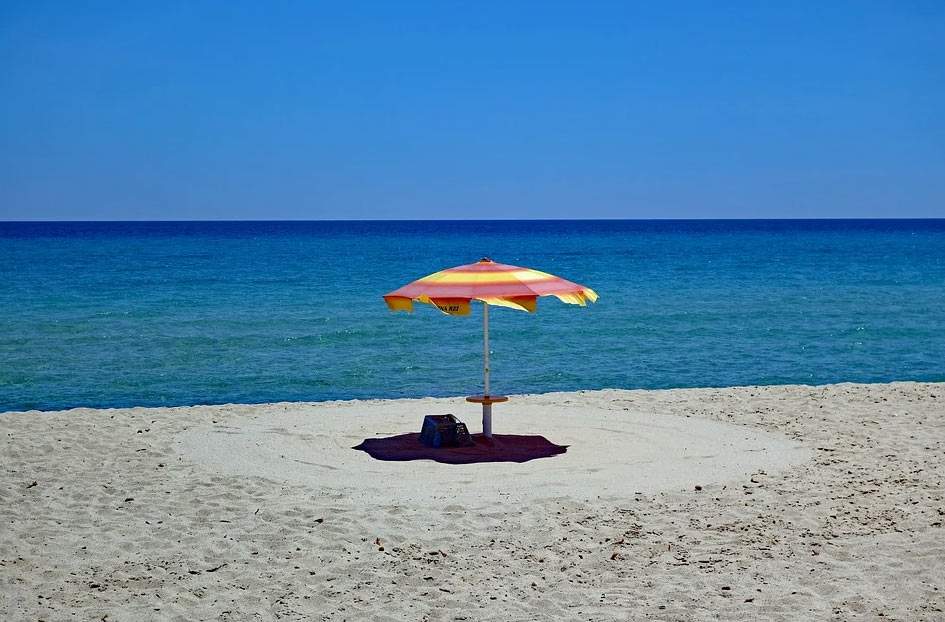Despite the reassurances of Minister Dario Franceschini, who on the issue of tourism corridors had spoken last May 11 in a meeting with German Tourism Minister Thomas Bareiss (and Germany had made it known that it had rejected proposals for tourism corridors that had been put forward to it), and despite the stance of Foreign Minister Luigi Di Maio, who earlier this week, in a videoconference of his EU counterparts, had declared that the hypothesis would not find a course and that Europe will work united to deal with the tourist season, the specter of Italy being isolated and deliberately cut off from European tourist routes seems to be drawing ever closer.
Yesterday, in fact, a meeting of European Union tourism ministers was held: on the agenda were guidelines proposed by the Commission to safely regulate the tourist season to allow vacations that can ward off coronavirus infection. The meeting, however, ended in a deadlock, because some countries (Croatia and Austria) are betting everything on direct agreements with Germany: on some tourist flows coming from Germany, in fact, the two countries are direct competitors of Italy, and bilateral agreements would mean a loss for our country. In 2018, 58 million German tourists arrived in Italy, compared to 44 who went to Austria and 19 to Croatia: preventing German tourists from coming to our country would therefore be a huge advantage for Austrians and Croatians. Germany then poses an additional problem: it is in fact a country with strong tourist outflows, and keeping them in would benefit its economy, which is why some states are banking on prolonged border closures.
For several weeks now, moreover, Austria, Croatia and the Czech Republic have been working on their own to create bilateral agreements: even at yesterday’s meeting, the Croatian minister of tourism, Gari Cappelli, made no secret of the fact that he wanted to try to play this card, motivating it with reasons to contain the Covid-19 contagion. The usual reasons were given by Austrian Chancellor Sebastian Kurz, who, in a May 20 interview with the Tiroler Tageszeitung, let it be known that reopening the borders between Austria and Italy this summer would be “irresponsible” because of the epidemiological data coming in from our country. And then there is another bone of contention, that of Britain, which has floated the idea of opening its borders to tourists, but only to those coming from France. Thus, we are heading toward a situation in which Italy would be among the most penalized countries: bilateral agreements would be a major blow to our country, which depends on tourism for 13 percent of its GDP.
Meanwhile, controversy is raging in Italy: opposition figures have already made themselves heard in Parliament with numerous questions. As early as last May 12, Luca Ciriani (Fratelli d’Italia) recalled that “the president of the Friuli-Venezia Giulia region, Massimiliano Fedriga, has already brought to the attention of the minister in charge the urgency of preventing the creation of a fast track for tourism that would see the exclusion of the Italian seaside resorts,” and that “at the moment the situation for Italian tour operators is dramatic,” asking Minister Franceschini what measures he intends to put in place to prevent our tourism sector “from being damaged due to exclusion from international agreements and tables that are being frantically held at the moment.” Along the same lines, another Fdi parliamentarian, Monica Ciaburro, who on May 14 asked the minister to give an account of initiatives to avoid the risks arising from agreements that could isolate Italy, and again yesterday, May 21, six other Fdi parliamentarians (Davide Galantino, Luca De Carlo, Ciro Maschio, Monica Ciaburro, Maria Cristina Caretta, and Wanda Ferro), again in a parliamentary question, stated that “if the European Union were to allow such a blatant boycott of Italy blatant within the single market, the situation of the Italian tourism sector would suffer severe repercussions in a scenario already tragic in itself due to the consequences brought about by the coronavirus.”
The majority is also putting pressure on Franceschini, Di Maio and European Affairs Minister Vincenzo Amendola: in a May 19 question, twenty-eight Pentastellati parliamentarians asked the three ministers what measures “they intend to put in place to ensure the unity of the single European market in the tourism sector, with particular reference to the different epidemiological situations between the various states and within them between different regions.”
The issue was addressed this morning by Undersecretary for Cultural Heritage Lorenza Bonaccorsi, who let it be known that, with other European Union states, Italy has signed a joint document submitted to the Commission at the initiative of France. The main points of the document concern common health protocols for those working in the tourism sector, coordination in defining dates for the reopening of tourist facilities, particularly between neighboring areas, combating discrimination based on citizenship for tourists from the Schengen area, and agreed measures for the resumption of intra-EU and international mobility.
The game therefore passes to the Commission, and in the coming days it will be known what will have been decided on tourism. Prime Minister Giuseppe Conte said last week that Italy will not allow the creation of bilateral agreements capable of creating privileged tourism routes: the premier reiterated that he also raised the issue in his last conversation with Commission President Ursula von der Leyen. For Conte, too, such agreements would be “outside the EU” and mean “the destruction of the market.”
 |
| Tourist corridors are feared: will agreements among European countries isolate Italy causing us serious damage? |
Warning: the translation into English of the original Italian article was created using automatic tools. We undertake to review all articles, but we do not guarantee the total absence of inaccuracies in the translation due to the program. You can find the original by clicking on the ITA button. If you find any mistake,please contact us.